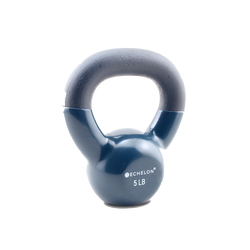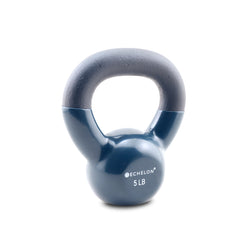Get Fit, Stay Happy: How Exercise Affects Your Mood

Exercise is not just great for your physical health—it can have a powerful impact on your mental health, too. Whether you’re looking to ward off stress or improve your overall mood, the benefits of exercise are plentiful. In this blog post, we’ll explore how exercise can benefit your mental health and provide tips for getting started with your own exercise routine. So read on to find out why getting fit can help you stay happy!
Exercise and Endorphins
When we exercise, our bodies release endorphins, also known as "feel-good" hormones. These endorphins interact with receptors in our brain to reduce our perception of pain and trigger positive feelings in the body. This surge of endorphins is what gives us that famous "runner's high." Regular exercise can increase the production of endorphins, leading to long-lasting improvements in mood and overall mental well-being. So, whether it's going for a jog, hitting the gym, or joining a dance class, remember that exercise not only benefits your physical health but also has a powerful impact on your mental health.
Reduces Stress and Anxiety
Exercise has been shown to reduce stress and anxiety levels in individuals of all ages. Physical activity helps to lower the body’s levels of stress hormones, such as cortisol, while increasing the production of endorphins, the body’s natural mood-boosters. Exercise can also serve as a healthy outlet for the emotions and energy associated with anxiety, allowing individuals to release tension and feel more relaxed. Furthermore, regular exercise has been shown to improve resilience to stress, helping individuals better manage daily stressors. Incorporating exercise into your daily routine can lead to a calmer and more relaxed mind.
Boosts Confidence and Self-Esteem
Exercise has a profound impact on boosting confidence and self-esteem. When we engage in physical activity, we challenge ourselves and push our limits, leading to a sense of accomplishment and pride. Additionally, exercise helps improve body image and promotes a positive self-perception. As we become stronger and fitter, we feel more confident in our abilities and appearance. The endorphins released during exercise also contribute to an overall sense of well-being and a boost in self-esteem. So, lace up those sneakers and watch your confidence soar along with your physical fitness!
Helps Manage Depression
Exercise has been proven to be a powerful tool in managing depression. In fact, many studies have shown that exercise can be just as effective as medication for treating mild to moderate depression. When you exercise, your brain releases endorphins, which are feel-good chemicals that can help to improve your mood and reduce feelings of anxiety and stress. Additionally, regular exercise can help to increase the production of new brain cells, which can help to reduce the symptoms of depression over time. Whether you prefer running, yoga, or weightlifting, incorporating exercise into your daily routine can have a profound impact on your mental health.
Improves Sleep
One of the many benefits of regular exercise is improved sleep quality. Engaging in physical activity helps to regulate your body's circadian rhythm, making it easier to fall asleep and stay asleep throughout the night. Exercise also reduces feelings of restlessness and promotes a deeper, more restorative sleep. Not only does getting enough sleep improve your overall mood and energy levels, but it also allows your brain to properly recharge and function at its best. So, if you've been struggling with sleep, incorporating exercise into your daily routine may be just what you need.
Enhances Brain Function and Memory
Exercise not only benefits your physical health but also has a positive impact on your brain function and memory. Regular physical activity increases blood flow to the brain, delivering oxygen and nutrients that support brain cell growth. This leads to improved cognitive function, better memory retention, and enhanced problem-solving abilities. Exercise also stimulates the production of growth factors, such as BDNF, which promote the growth of new nerve cells and improve synaptic plasticity. So, if you want to stay mentally sharp and boost your memory, lace up those sneakers and get moving!












































































